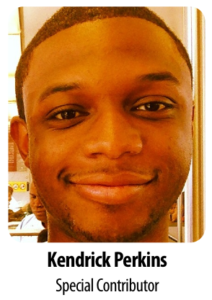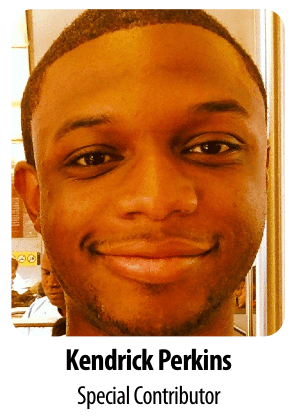 Why would I, a gay black man from the piney woods of East Texas, choose to fight for justice on behalf of a woman from a South African township who is believed to have been murdered for being a lesbian activist? Because I, too, have lived with hateful prejudice.
Why would I, a gay black man from the piney woods of East Texas, choose to fight for justice on behalf of a woman from a South African township who is believed to have been murdered for being a lesbian activist? Because I, too, have lived with hateful prejudice.
Why should I dwell on injustices occurring in a place I’ve never been, to a person I never met? Because if I don’t, no one will.
Noxolo Nogwaza was a 24-year-old black South African lesbian LGBT rights activist who was brutally beaten, raped and stabbed to death in 2011. Three years later, no progress has been made in investigating her murder and Noxolo’s killer(s) have not been arrested or brought to justice.
She was a mother, soccer fan and an activist with the Ekurhuleni Pride Organizing Committee that aims to empower and inform LGBT people and combat hate crimes against them.
Despite the risks of being “out” as a lesbian, Noxolo lived a full and assertive life. She chose activism despite knowing homophobia and hate crimes against LGBT individuals are common in many parts of South Africa, where taunts, insults and threats are often part of an inescapable reality. Furthermore, in the last five years, there have been at least 10 cases reported of rape followed by murder of LGBTI individuals in South African townships.
I first learned about what happened to Noxolo from Amnesty International. Through their annual global letter-writing campaign Write for Rights, Amnesty inspired hundreds of thousands of people throughout the world to demand justice for Noxolo. LGBT people face such violence everywhere: Whether they live in a small town in Texas, New York City or South Africa. Here in the U.S. I witnessed and experienced the violence and pain faced by many LGBT individuals around the world.
While generally society is becoming more accepting of LGBT individuals, there still remains much stigma, including in my own black community. Some contend that homosexuality contradicts traditional Christian beliefs, family values and gender roles and that it “goes against what it means to be black.” Perhaps I feel compelled to tell people about Noxolo because I feel connected to her through that shared feeling of alienation by people in a close-knit community. As black people, as gay people, we all experience the same struggle for inequality.
It is important that together as a global community we counter the prejudices that are deeply ingrained in our culture. It is important to understand the universal nature of discrimination and adhere to an obligation to speak out against these injustices regardless of geographic barriers. We are all responsible for each other.
Noxolo was a black woman and a lesbian. She was a mother and a soccer fan. Her assault and murder are unspeakable, and her family should not have to wait a minute more for justice. It’s up to you and me to stand together and fight as a collective force against injustices, refusing to accept the status quo set forth before us by bigotry and intolerance. If we don’t, no one will. If we do, powerful things will happen.
Kendrick Perkins is a college student at Stephen F. Austin State University and an activist with Amnesty International USA.











